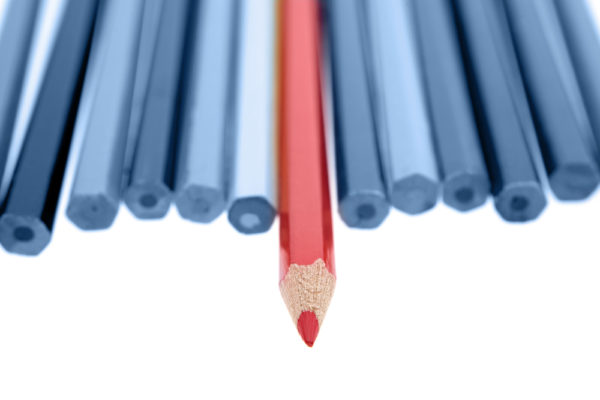
As the push for reauthorization of the Elementary and Secondary Education Act (ESEA) increases, leaders in the field of special education recently debated whether the Individuals with Disabilities Education Act (IDEA) should be reworked to further align with ESEA, and how else the law might be improved to better meet the needs of students with disabilities.
“The 2004 Individuals with Disabilities Education Act has changed priorities for special-needs students. It’s been credited with improving outcomes for students but criticized for generating bureaucracy and rules and regulations that some believe stand in the way of providing more effective services,” said Darrell West, vice president and director of governance studies for the Brookings Institution. West moderated a Jan. 18 panel discussion on how to improve special ed.
Alexa Posny, assistant secretary for Special Education and Rehabilitative Services with the U.S. Department of Education (ED), argued that IDEA has been very successful in meeting the needs of students with disabilities—and aligning it with ESEA would increase its strength even further.
Other recent special-ed news and information…
Conference: Technology is helping to ‘redefine … disability’
Technology access law helps those with special education needs
“I’m advocating for greater alignment between ESEA and IDEA. Alignment does not mean the merger of IDEA and ESEA. Nor does it represent any intention whatsoever to diminish or weaken IDEA as a unique and freestanding civil rights statute. … The reauthorization of ESEA and IDEA will create an opportunity for a paradigm shift that will allow us to define one educational system, while also refining our policies and practices to make certain that we educate all students to the highest possible standards,” said Posny.
Better alignment of IDEA and ESEA would allow policy makers to use the same definitions for what makes a highly effective teacher; use the same data-collection system for both general and special ed; coordinate initiatives within schools districts and education agencies; and concentrate on results rather than enforcement, she argued.
But others weren’t so sure that aligning the laws’ policies would have the best outcome.
“At first glance, the notion of blending these laws has an incredible intuitive appeal. I mean, it’s the ultimate goal—the total seamless education and full integration of students with disabilities. [But] I think it’s a lot more complicated than that,” said Marilyn Friend, a professor of education at the University of North Carolina at Greensboro.
ESEA mandates the scrutiny of academic achievement for whole subgroups of students within a school or district, while IDEA requires close measures of individual students, Friend explained. What’s more, IDEA focuses on more than just academic achievement, such as the social and emotional requirements of special-needs students.
“It seems that instead of debating one law or two, our time really is best spent … focusing on the critical issues that data and experience inform us. These are issues that we should tackle,” Friend said.
Other recent special-ed news and information…
Conference: Technology is helping to ‘redefine … disability’
Technology access law helps those with special education needs
For instance, she said, policy makers and education leaders should work to raise the quality of instruction among both general and special-ed teachers, as well as increase the focus on Universal Design for Learning (UDL) and ensure access to—and appropriate uses of—technology in the classroom.
“And then, of course, … we really must insist on full funding, appropriate funding, for [IDEA], to be sure that all the different aspects of it can be addressed in a way that’s actually valid—because if we don’t have adequate resources, that’s not possible,” Friend said.
IDEA stipulates that the federal government pay for up to 40 percent of the cost of providing special-ed services for students with disabilities, but estimates show that federal spending typically covers only 15 percent to 20 percent of these costs—leaving states and local school systems to foot the rest of the bill.
One area of alignment between ESEA and IDEA that panelists seemed to agree on was including language on Response to Intervention (RtI) in the new version of ESEA. RtI is a method of intervention designed to provide early assistance to children who are having trouble learning. Originally intended as a way to identify special-needs students early on in the education process, it has become an effective tool for educating all children, panelists argued.
Posny noted that 6.6 million students with disabilities are learning alongside their peers at a neighborhood school, up from 1.7 million in 1975. Of those 6.6 million, 60 percent graduate with a regular high school diploma, and half of those students enroll in a postsecondary program.
“The bottom line [is], IDEA has resulted in improvements as we come to learn more about how best to educate students with disabilities,” Posny said.
But Doug Fuchs, Nicholas Hobbs Chair in Special Education and Human Development at Vanderbilt University, disagreed.
“There is no clear, strong message that the academic performance of students with disabilities is improving as a function of IDEA. … The data generally indicate that most students with disabilities are continuing to perform poorly,” said Fuchs.
He explained that, among schools failing to achieve Adequate Yearly Progress because of the academic performance of one subgroup, it’s the students with disabilities subgroup that is most frequently identified as the reason.
Special ed “has lost its way in this country,” Fuchs said. “It’s lost its capacity to provide intensive and expert instruction to our most academically vulnerable children and youth. There needs to be national recognition of this fact, and a collective rethinking of special education and the role of special educators in our nation’s schools. Until these things happen, there will be no important academic improvement for students with disabilities.”
Other recent special-ed news and information…
Conference: Technology is helping to ‘redefine … disability’
Technology access law helps those with special education needs
He later explained that, by his estimate, roughly 10 percent of the general student population is what he called “chronically unresponsive” to intervention efforts. Placing these students in a mainstream classroom that is co-taught by a general and a special educator cannot help them, he said, as he argued for a more intensive approach.
Lon Jacobs, a lawyer for News Corp. whose 14-year-old daughter has Down Syndrome, argued that mindsets need to be altered before any real change can occur.
“The biggest problem that we have in special education is the attitudes of some of the people in mainstream America,” said Jacobs. “Our children are often considered not quite human, that they’re not deserving of the attention they’re given, the money is better spent on other students, and it’s these attitudes that have to change before we’ll ever fix the special-education system.”
Jacobs said he believes that incorporating special-needs students into mainstream classrooms is far more beneficial than isolating them from the general population. But he acknowledged that it doesn’t have to be an “either-or” scenario, and he called for a rethinking of the idea of “least restrictive environment” (LRE).
“The notion of inclusion, introducing these special kids to the mainstream, is important. They need to humanize these children; they need to realize we’re all part of the human civilization,” he said of educators. But inclusion probably works best in the elementary grades, he added, and it might not work as well in high school, where special-needs students often are marginalized or bullied.
“What we need is to broaden the concept of LRE, find the programs that work, and find a way where they become scalable and where you can incorporate them into the public school system,” Jacobs said.
Posny spoke of the importance of setting real goals for students with disabilities in order to prepare them for more independence.
Other recent special-ed news and information…
Conference: Technology is helping to ‘redefine … disability’
Technology access law helps those with special education needs
“Students with disabilities are truly a part of, not separate from, the diversity of American public schools. As such, the upcoming reauthorization of ESEA must continue to account for the needs of students with disabilities, and IDEA programs should provide the extra support to help students with disabilities achieve challenging standards,” said Posny.
Friend, as well as the other panelists, emphasized that well-trained educators were a huge factor in special-ed success.
“We really must continue to focus on the quality of instruction delivered both by special educators and general educators. We have to ensure that educational leaders, especially principals, have adequate knowledge and sufficient skills to translate federal and state policy into sustainable practices in every school in this country and hold them accountable for doing so,” she said.
The panel, entitled “Building on IDEA: Policy Solutions to Improve U.S. Special Education,” was presented at the Brookings Institution.
- New film fights negative perception of teachers - September 16, 2011
- Textbook-free schools share experiences, insights - September 7, 2011
- Social websites are latest sources for plagiarized material - September 1, 2011


Comments are closed.